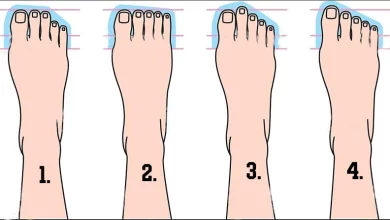Top Signs That You Have Magnesium Deficiency and What to Do About It
- Industrial agriculture depletes the soil of nutrients. Rather than fertilizing with rich, vibrant compost, we treat the soil with synthetic fertilizers. As a result magnesium has been depleted from topsoil, diminishing its dietary intake.
- Refined/processed foods are stripped of their mineral, vitamin, and fiber content.
- Municipal water-purification facilities have intensified their efforts to remove contaminants like lead, pesticide residues, and nitrates from drinking water. Unfortunately, these modern water-treatment methods also deplete drinking water of desirable minerals like calcium and magnesium. Exacerbating this problem is that many people have added home water filters that extract any remaining minerals from the water.
DISEASES CAUSED BY MAGNESIUM DEFICIENCY
Since magnesium is so essential to bodily processes, a lack of it can contribute to a wide variety of health issues. Without the right amount of this crucial mineral you could be putting yourself at risk for some serious health issues.
Because of the way it interacts with calcium, a lack of magnesium could contribute to the development of osteoporosis and frail bone health. There has also been a connection with the prevention of heart disease and heart attacks. Sudden heart attack death victims are commonly found to have low levels of magnesium.
A lack of magnesium could also contribute to the development of kidney stones. The mineral makes calcium dissolve much more effectively in the urine. Without this you could prevent painful kidney stones from forming. Some other diseases caused by magnesium deficiency include PMS, high blood pressure, menstrual cramping, insomnia and cancer. A magnesium deficiency can lead to involuntary muscle spasms, including eyelid twitching.
HOW TO STAY MAGNESIUM SUFFICIENT
The first step in maintaining healthy levels of magnesium is identifying the root of the problem. For most people, it lies within a restricted diet. New advances in farming have drained crops of magnesium and ruined foods that were once great sources. Water used to also be a good source of magnesium but the fluoride being added makes it harder for the body to break down the minerals.
There are also several habits that contribute to magnesium depletion. Drinking caffeine daily (especially with loads of sugar), eating too much processed foods, and drinking lots of alcohol are all habits that can lower mineral levels. There are also certain types of medication like birth control pills and diuretics that deplete magnesium. Consult your physician if you’re taking any medication and concerned about your magnesium levels.
WHAT YOU CAN DO
The best food sources for magnesium are usually vegetables and nuts. There are plenty of fruits and whole grains that can also give you a magnesium boost. Next time you go shopping consider some of the following items for your list:
- Dark Leafy Greens (like spinach and kale)
- Sunflower/Pumpkin Seeds
- Lentils and Beans
- Brown Rice
- Avocado
- Banana
- Dark Chocolate Bars or Powder
Sadly now that farm soil has been depleted of minerals we can’t rely on diet alone for proper magnesium intake. If you can, gravitate toward foods that are organic and non-processed. If you have trouble eating vegetables try finding a juicing routine that fits your taste.
Some people have turned to the use of supplements. Magnesium supplements can be found in powder form, liquid, capsules or tablets. You can find inexpensive products that feature magnesium citrate , which is among the most readily absorbed forms of magnesium supplements.
Because of the potential for side effects and interactions with medications, dietary supplements should be taken only under the supervision of your health care provider.



